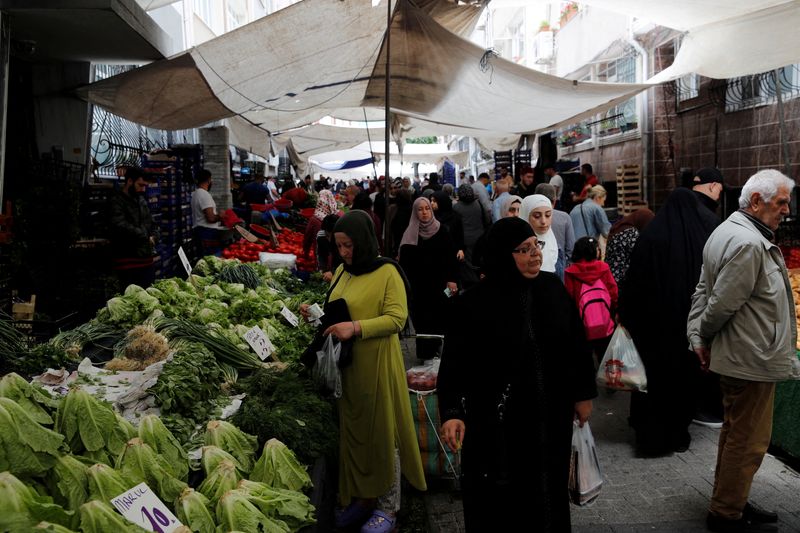ISTANBUL (Reuters) -Turkey’s economy grew 5.7% in the first quarter, in line with expectations, official data showed on Friday, driven by strong domestic demand.
Growth is expected to slow during the rest of the year as the central bank’s aggressive monetary tightening in the face of soaring inflation weighs on economic activity.
The economy is predicted to grow 3.15% in 2024, according to a Reuters poll. Forecasts announced in September showed the government expects the economy to grow 4% this year.
Finance Minister Mehmet Simsek said thanks to rule-based, predictable policies, the country is heading towards more balanced and sustainable growth this year.
“Indicators for Q2 indicate that the balancing of the economy continues. We see balanced growth in 2024, with a positive contribution from net foreign demand,” Simsek said in a statement.
Turkey’s economy grew an annual 4.5% in 2023 and 4% in the first quarter of that year, despite a slowdown in main trading partners and devastating earthquakes in February.
The central bank raised its policy rate by a total 4,150 basis points in a tightening cycle since last June, the latest one to 50% in March, citing deterioration in the inflation outlook. It has kept the benchmark rate steady since then and vowed to act if the inflation outlook worsens.
Annual inflation is expected to hit around 75% this month, according to a Reuters poll and the central bank. It is seen declining in the second half due to the tighter policies. In April, annual inflation stood at 69.8% year-on-year.
Economists have said the annual minimum wage hike and households bringing purchases forward in expectation of higher inflation powered the strong growth ahead of the local elections on March 31.
Even with tighter monetary conditions, first-quarter gross domestic product (GDP) grew 2.4% from the previous quarter on a seasonally and calendar-adjusted basis, data from the Turkish Statistical Institute showed.

In the first quarter, the total value added increased by 11.1% in construction and 5.5% in information and communication.
Final consumption expenditure of resident households increased by 7.3%. Exports rose 4% and imports fell by 3.1% in the period, the data showed.
To read the full article, Click Here

